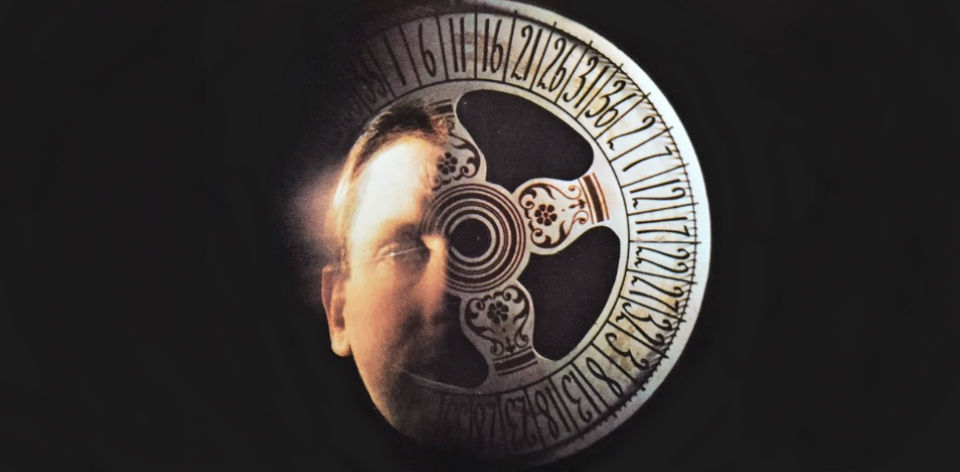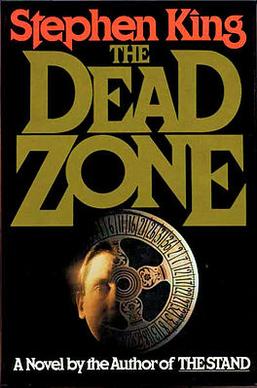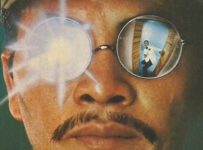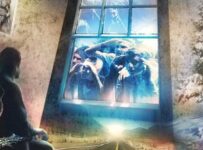Welcome to the feature column that explores a decent number of Stephen King’s books in the order they were published! (More or less!)
On the surface, THE DEAD ZONEhas a seemingly familiar Stephen King setting: a small-town teacher has it all before things start to go supernaturally wrong. Yet in both pacing and overall structure, King serves up something decidedly different. This unhurried psychological drama is a union of his Bachman and King personas to this point, and an exemplar in slow-building tension that can rightly be said to be a novel of three distinct parts.
What’s striking in the first half of the book is that there is no evidence of an immediate threat. Johnny Smith suffers a head injury as a child, and years later has an uncanny ability to win at wheels of fortune. When he is involved in a car accident, he awakens from a five-year coma with enhanced prognostication abilities: he touches a person and sees a little of their future. Yet King is in no rush to do much with the ability except show how it is ruining Johnny’s life.
King is interested in deeply exploring the characters around his ill-fated protagonist. This has always been King’s strong suit, allowing both himself and the reader a chance to discover a person through their closest connections. His ex-girlfriend Sarah has moved on and got married, his father an emotional shell, and his pious mother now a religious fanatic incapable of comprehending reason. (Indeed, she’s a bit of a parallel to Carrie’s mother in King’s debut novel, one explicitly referenced later in the book). This is all fine, with King giving us a potted tour of media and politics in the 1970s and the perils of the minor celebrity Johnny’s abilities bring him.
The tone shifts when we are introduced to Sheriff Bannerman and the town of Castle Rock, the first time this historic (and fictional) Maine town appears in the Kingverse. The good sheriff asks for Johnny’s help in solving a series of murders that have been occurring in the town. Johnny reluctantly agrees, and in doing so we learn something very important about his character. Johnny might shun his abilities, but he is unwilling to walk away from doing what he sees as “the right thing.” Yet it’s also a timely reminder that “the right thing” is entirely subjective.
For any other writer except Stephen King, the Castle Rock storyline would be the second and third act of the novel. Yet there’s a third distinct strand to THE DEAD ZONE that is even more of a tension creeper. Greg Stillson, teased in the first few sections of the book, makes a grander entrance in the third act as a political frontrunner. Johnny gets some bad vibes off him, and his obsession (mirroring his mother’s) fuels the remainder of the narrative. Faced with a ‘Grandfather Paradox’ of sorts (that is, if you had a time machine, would you kill baby Hitler?), Johnny moves closer to acting on his beliefs. Here we must also put out faith in the narrative gods. Although we’ve seen Stillson do some shady things, he’s not yet become the Randall Flagg figure that Johnny believes he will be. Is past performance enough for us to wholeheartedly put our faith in Johnny’s potentially murderous intent? (You bet it is).
Reading this in 2019, it’s a little bit shocking how topical it has become again. King explores the hysteria and fascist tendencies that surround a campaign run on personality politics. It’s like It Can’t Happen Here for the post-Vietnam generation. King explicitly states in the front-matter that the book “plays against the historical backdrop of the last decade, the reader may recognize certain actual figures who played their parts in the 1970s.” The reader may recognise a few from our contemporary era too, and it’s fair to say that Stillson’s clownish actions are tame in comparison to modern part politics in the age of social media. Johnny’s final acts are familiar too, but for all the wrong reasons.
As an (In)Constant Reader of King, albeit someone who is discovering many of his works more recently, THE DEAD ZONE is something of a revelation. It’s a Castle Rock book where the supernatural elements are merely a device for exploring the basest fears and emotions of humans. In other words, it’s a Stephen King novel.





